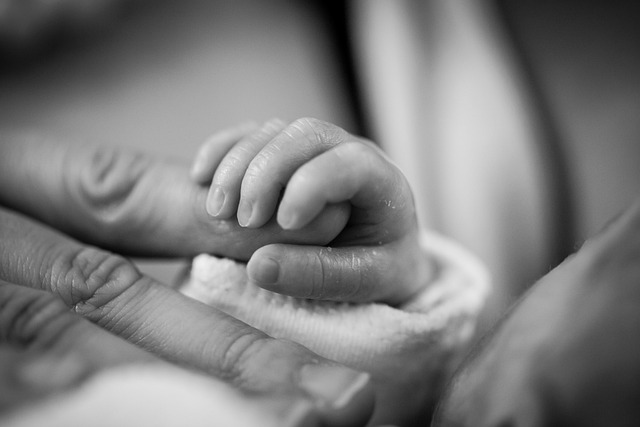To navigate the UK's bureaucratic systems with a birth certificate from a non-English speaking country, obtaining a certified and accurate translated version is essential. This translation must be conducted by a professional translator endorsed by recognized bodies like the Institute of Translation and Interpreting (ITI) or the Chartered Institute of Linguists (CIOL). The UK's General Register Office oversees birth certificates, and their translations must precisely capture all details to meet legal standards. A certified translation for a birth certificate in the UK is not only linguistically correct but also legally recognized as equivalent to the original document. This ensures acceptance by authorities such as the Home Office and UK Visas and Immigration. For international use, additional authentication like an apostille may be required. It's important to select the right type of birth certificate from the General Register Office for your needs, with the long-form certificate often necessary for international purposes. The translation must include a statement from the translator certifying its accuracy and their qualifications, along with their contact information and official seal or stamp. This process guarantees that the translated birth certificate will be recognized and accepted by UK authorities for official use.
navigating the requirements of UK authorities can be a pivotal task for individuals and families alike. When authenticity and legal recognition are paramount, obtaining a certified birth certificate translation in the UK is not just a formality—it’s an integral step. This article delves into the essential aspects of certified birth certificate translations within the UK’s legislative context. We explore the various types of birth certificates recognised by UK authorities, the stringent legal framework governing their acceptance, and the meticulous process for securing a certified translation. Understanding these elements is crucial for anyone requiring such documentation for official purposes.
- Understanding the Necessity of Certified Birth Certificate Translations in the UK
- The Legal Framework for Birth Certificate Recognition in the UK
- Types of Birth Certificates Accepted by UK Authorities
- The Process of Obtaining a Certified Translation for Birth Certificates in the UK
- Key Considerations When Translating Birth Certificates for Use in the UK
Understanding the Necessity of Certified Birth Certificate Translations in the UK

When individuals from non-English speaking backgrounds reside in or visit the United Kingdom, the necessity for certified birth certificate translations becomes paramount. The UK’s official documents and registration processes typically require accurate and authoritative translations to facilitate legal, administrative, and social interactions. In the UK context, a certified translation is not merely a linguistic conversion but a verification of the translated content’s authenticity. This is where professional birth certificate translation services in the UK play a pivotal role. These services ensure that the translated birth certificates adhere to UK standards, bearing a statement of accuracy and a signature from a qualified translator who has been accredited by a relevant authority, such as the Institute of Translation and Interpreting (ITI) or the Chartered Institute of Linguists (CIOL). This level of certification is crucial for institutions like the Home Office, UK Visas and Immigration, and other governmental bodies to accept these translations as official documents. Individuals requiring such translations must ensure that they engage with professional translators who can provide this level of verification to avoid any legal complications or delays in processes such as citizenship applications, university enrolment, or inheritance matters. The precision and credibility of certified birth certificate translations are indispensable for a seamless integration into UK life for both residents and visitors.
The Legal Framework for Birth Certificate Recognition in the UK

Within the United Kingdom, the legal framework governing the acceptance and recognition of certified birth certificates is firmly established under both national and international laws. The General Register Office (GRO) for England and Wales, the National Records of Scotland (NRS), and the General Register Office for Northern Ireland (GRONI) each maintain their respective registers of births. These offices are responsible for issuing official birth certificates, which serve as authoritative documentation of an individual’s identity and date of birth.
For individuals requiring birth certificate translation services in the UK, the legal recognition is paramount. The Antiquities, Records, and Museums (ARMM) Act 1986 and the Public Records (Scotland) Act 1937 provide a statutory basis for the preservation and protection of public records, including birth certificates. Translations of such documents must adhere to strict standards to ensure their legal validity. The UK’s Home Office stipulates that any translated document, including birth certificates, must be accurate, complete, and certified by a professional translator who is recognized by one of the relevant bodies, such as the Institute of Translation and Interpreting (ITI) or the Chartered Institute of Linguists (CIOL). This ensures that the translated birth certificate holds the same legal weight as its original version, facilitating its acceptance across UK authorities.
Types of Birth Certificates Accepted by UK Authorities

When individuals require certified birth certificates for official purposes within the UK, it is imperative to understand which types of birth certificates are accepted by authorities. The General Register Office (GRO) in the UK issues several types of birth certificates, each serving different verification needs. A long-form certificate, often requested for use abroad or for passport applications, provides a full record of an individual’s birth registration and includes details such as place and date of birth, names of parents, and registration particulars. For those who need to present their birth certificate in a language other than English or Welsh, professional translation services that offer ‘birth certificate translation UK’ are available to ensure the document is legally recognized and accurately conveys the original information. This translation must be certified by a professional translator who has been accredited by an official body, such as the Institute of Translation and Interpreting (ITI) or the Chartered Institute of Linguists (CIOL). Additionally, the translated document may need to be accompanied by an apostille or other forms of authentication for it to be accepted by UK authorities. It is essential to verify with the relevant authority, such as the Home Office or UK Visas and Immigration (UKVI), to confirm which specific type of birth certificate and translation is required for your particular situation.
The Process of Obtaining a Certified Translation for Birth Certificates in the UK

When the need arises to utilize a birth certificate for official purposes in the UK, obtaining a certified translation is often a necessary step, particularly for individuals born outside the country or those who possess a non-English language birth certificate. The process of securing a certified translation that UK authorities will accept begins with selecting a qualified translator. This professional should be adept at translating into and from English and must have been accredited by the relevant authorities, such as the Institute of Translation and Interpreting (ITI) or the Chartered Institute of Linguists (CIOL). The translator’s proficiency ensures that the translation is not only linguistically accurate but also captures the essence and legal specificities contained within the original document.
Upon engagement with a certified translator, the individual requiring the translation must provide their birth certificate. The translator will then meticulously translate the document, converting all information into English while maintaining the integrity of the source text. Once the translation is complete, the translator affixes a statement certifying that it is a true and accurate representation of the original. This certified statement typically includes the translator’s signature, their contact details, and a stamp or embossed seal to authenticate the document. The final step involves submitting this certified translation along with the original birth certificate to the UK authority requesting it, ensuring that all legal requirements are fulfilled and that the translated document is recognized as valid for the intended purpose.
Key Considerations When Translating Birth Certificates for Use in the UK

When translating a birth certificate for use in the UK, it is imperative to engage with a professional translation service that specializes in legal document translation to ensure accuracy and compliance with UK regulations. The translation must not only convey the original text faithfully but also align with the specific formatting requirements set forth by the General Register Office (GRO) or other relevant UK authorities. This includes adhering to the official language of the document, typically English, and presenting the translator’s certification in a format that is recognized by UK institutions.
Furthermore, the translation must be certified to be a true and accurate representation of the original birth certificate. A certified translation involves a translator affirming, in writing, that the translated content matches the source document, and this declaration should include their qualifications, contact information, and a signature. It is also crucial to note that the translator’s credentials and the translation itself must be acceptable to the UK authority requesting the document. For instances where the birth certificate originates from non-English speaking countries, the translation service should ideally have native speakers with expertise in both the source and target languages to avoid any misunderstandings or misinterpretations of legal terms and information. This diligence is essential for the birth certificate translation UK to be accepted without delay by UK authorities, ensuring that individuals can present their identity documentation with confidence.
navigating the requirements for certified birth certificates accepted by UK authorities can be a straightforward process with the right guidance. This article has shed light on the essential role of certified translations within the legal framework that governs the acceptance of such documents in the UK. It is clear that understanding the types of birth certificates required, along with the process for obtaining their certified translations, is paramount for individuals and organizations alike. By adhering to the specifications outlined herein, one can ensure that their birth certificate translation UK meets all necessary criteria, facilitating seamless interactions with UK authorities. It is advisable to carefully consider the nuances of translation to avoid any complications that could arise from a document not being in proper order. With the correct procedure and attention to detail, your certified birth certificate translation will be an accepted document, paving the way for successful applications and transactions.
